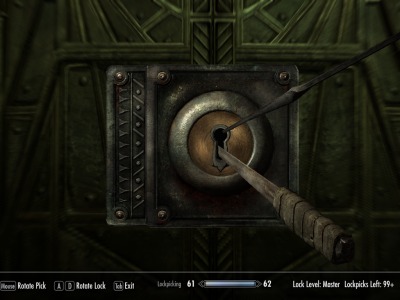
Let’s talk about one of my favorite games from my childhood, a little something called Sid Meier’s Pirates.
Pirates was quite the fiesta of mechanics, looking back on it. This game had a little bit of everything, and I think that is what made it so good. To this day, I would say it’s still the quintessential pirate game on the market (Sorry Assassin’s Creed Black Flag). It mixed so many different action elements and RPG elements, and it did it all so well. Everything just fit together like a great big puzzle, because there was so much to do and all of it was really fun and interesting, even the dancing.
The real question is, why did this huge swathe of mechanics work in the first place? Many games try and fail to have varied mechanics, typically falling flat on their face or simply being underwhelming and forgettable. What did Pirates do differently? Why do the small mechanics in other games simply not have the impact that the ones in Pirates do?
This, my good readers, is what is referred to as a “gimmick.” In game design, a gimmick is typically a mechanic that is “tacked on” so to say; it lacks depth or impact on the core gameplay, adding very little to the experience if nothing at all. A mechanic needs to be fleshed out and given respect in order for it to not fall into the category of gimmick, and this is exactly how Pirates managed to pull it off.
Most gimmicks are forgettable and forgivable, something simple that simply acts as an end to a means; this would be mechanics like kicking down doors in Dead Island, picking locks in Skyrim, quick time events in general, the loading screen slots in Sonic & All-Stars Racing Transformed, etc. They’re typically small, and insignificant. However, the problem with gimmicks isn’t always necessarily the mechanic in and of itself, but more so the implementation of the mechanic. Some mechanics would make great core mechanics, if they weren’t gimmicks or had gimmicky implementation. This just boils down to downright carelessness from a design standpoint.

Sometimes, gimmicks get more screen time though, and that is what usually contributes to the feeling of a game being “gimmicky.” Things like tacked on RPG elements, gimmicky shallow gameplay mechanics, etc. fall into this category. And yes, I do include tacked on RPG mechanics in the gimmicks category, because if your game is not built around being able to accept RPG mechanics, then you should not have RPG mechanics (looking at you, Far Cry 3). A gimmicky game isn’t necessarily a bad one, but it is definitely not up to the standards that it could be. If points get knocked off review scores for “feeling gimmicky,” this usually points to a lack of focus or vision from a design standpoint.
So, is there ever a situation where a gimmick is acceptable? I would not go so far as to say that a gimmick is ever or should ever be integral to a gaming experience, but for the most part they can be overlooked, and in rare instances they have a potential to break up monotony.
However, it should never be the goal of a developer or designer to implement gimmicks into their game. If you can look at a mechanic, ask yourself “If I cut this would anybody care?” and the answer is “no,” you should probably cut it. There is more chance that a gimmick does harm to your game than it does good. It’s like trying to make yourself a sandwich and throwing on too many condiments; sure, the sandwich would probably be great if it only had mustard, but you added mustard, ketchup, barbecue sauce, mayonnaise, hot sauce, pico de gayo, sour cream, guacamole, and grape soda, and if your stomach isn’t churning by now, you have stronger stomach than I do.
How did Pirates avoid some of these trappings? I would argue that the developers really took time to make all of the different parts of the game feel complete, as if you could remove that portion and have that be a game in and of itself – given some slight modification, of course. I won’t deny, it is arguable that it is really just a game of nothing but gimmicks, but it doesn’t feel like that. Everything in the game – the dueling, the naval engagements, the sneaking missions, the turn-based strategy sieges, and even the dancing – feel like complete experiences. This is because the developers and designers actually did their job, and fleshed these things out. Everything is multifaceted and important to the core experience that is Sid Meier’s Pirates. Leaving off any part of it would make it feel like a different game. I’d say it could probably be done, but knowing how the whole thing works together, trying to strip something out would be akin to cutting off a toe.
Developers, designers, take a note – it is not impossible to make your game a rainbow of mechanics. But you need to take precautions, and make sure every color in your rainbow is vibrant. We don’t need a gray scale rainbow.

